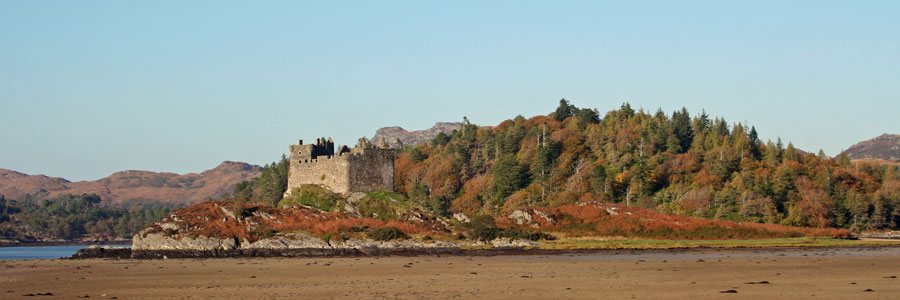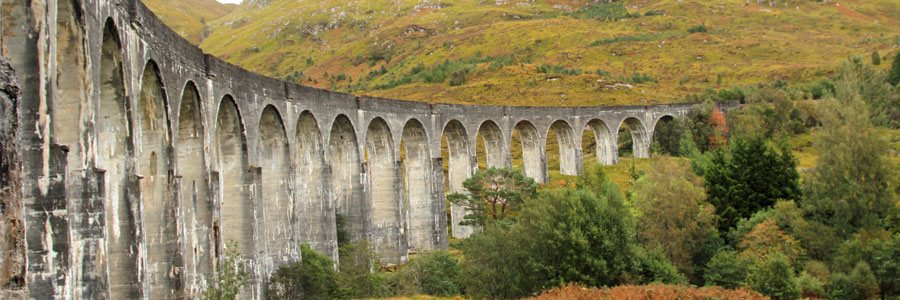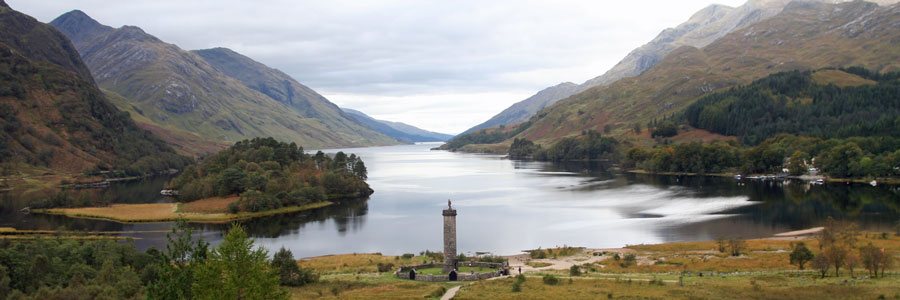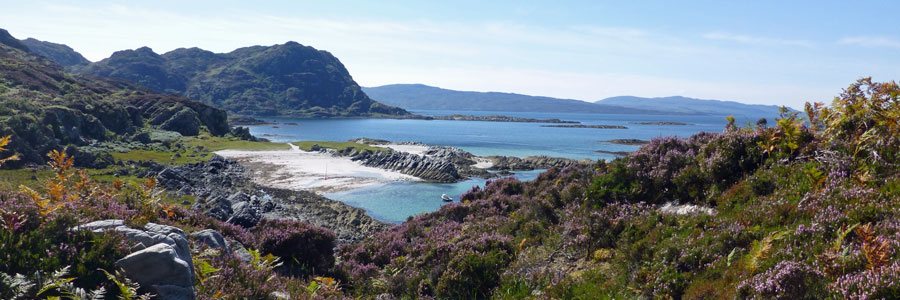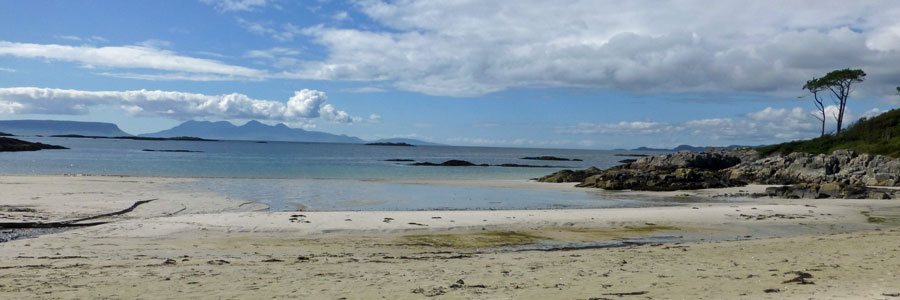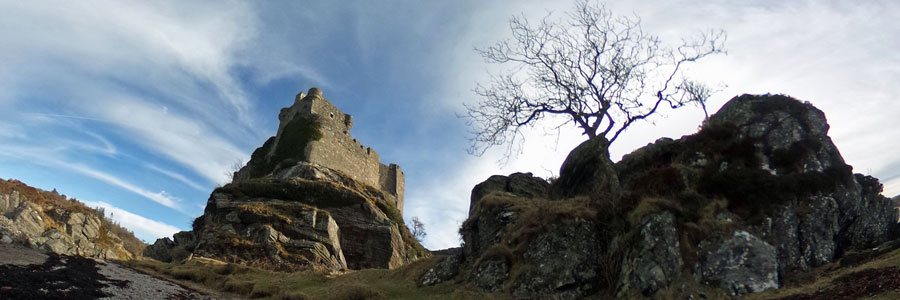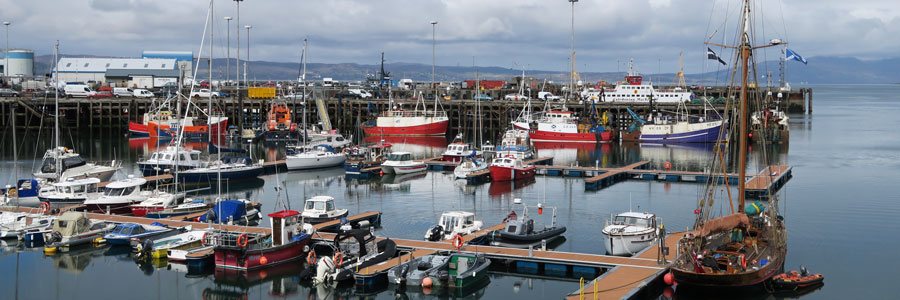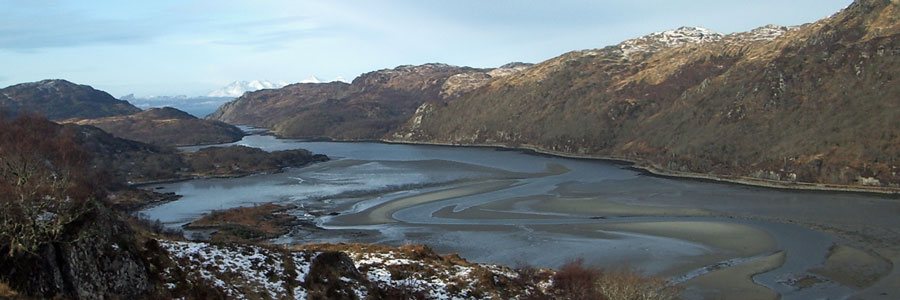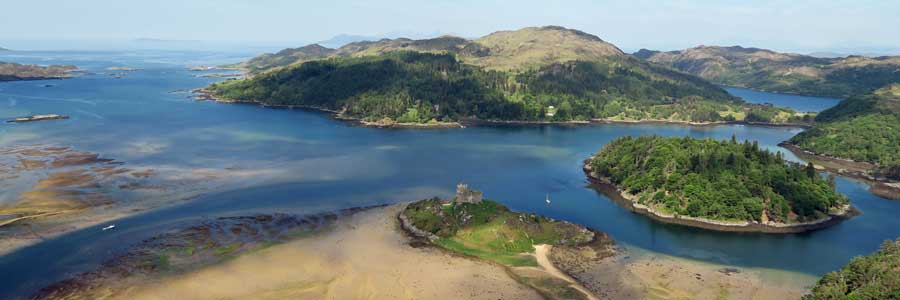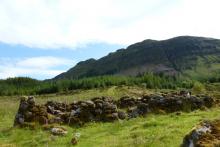 The defeat at Culloden not only scotched the aspirations of the Young Pretender to the throne, but also the confiscation of land and destruction of property of those involved in the uprising. It also heralded in a time of austerity for the majority of the denizens of Moidart, who had hitherto managed to eke out a living by subsistence farming; it was described as a "land of black cattle and drovers, of fishermen and farmers9. Increased rents, crop failures, a growing population, and the less congenial attitudes of landlords towards tenant farmers lead to poverty, famine and voluntary emigration. This was to be succeeded by assisted and forced emigrations to North America and Australia, as landlords sought to replace people with more profitable sheep and culminated in the brutal, widespread Highland Clearances of the 18th and 19th century5. This period led to a breakdown in the traditional dependent clan system and brought about growing inequalities and bitter division between certain landlords and their tenants. The many ancient abandoned settlements and historic townships scattered around the area bear witness to this life of poverty, injustice and forced clearances of the Highlands. However, other landlords are kindly remembered for the support given to their tenants in these hard times.
The defeat at Culloden not only scotched the aspirations of the Young Pretender to the throne, but also the confiscation of land and destruction of property of those involved in the uprising. It also heralded in a time of austerity for the majority of the denizens of Moidart, who had hitherto managed to eke out a living by subsistence farming; it was described as a "land of black cattle and drovers, of fishermen and farmers9. Increased rents, crop failures, a growing population, and the less congenial attitudes of landlords towards tenant farmers lead to poverty, famine and voluntary emigration. This was to be succeeded by assisted and forced emigrations to North America and Australia, as landlords sought to replace people with more profitable sheep and culminated in the brutal, widespread Highland Clearances of the 18th and 19th century5. This period led to a breakdown in the traditional dependent clan system and brought about growing inequalities and bitter division between certain landlords and their tenants. The many ancient abandoned settlements and historic townships scattered around the area bear witness to this life of poverty, injustice and forced clearances of the Highlands. However, other landlords are kindly remembered for the support given to their tenants in these hard times. 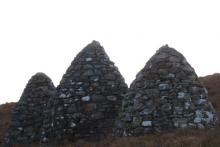 Many estate owners grew wealthy on the proceeds from sheep, cattle and kelp. Other small scale industries of the 18th century included tanning, charcoal production and smelting using the local timber and whisky production. However, this time of affluence was not to last as commodity prices fell at the end of the Napoleonic Wars5.
Many estate owners grew wealthy on the proceeds from sheep, cattle and kelp. Other small scale industries of the 18th century included tanning, charcoal production and smelting using the local timber and whisky production. However, this time of affluence was not to last as commodity prices fell at the end of the Napoleonic Wars5.
Even the large ancestral estate of the Clanranalds was broken up and sold off in early 19th century by Reginald, the 18th Chief. However, this fate was not one forced by extreme misfortune, but rather the inadequacy an income to support the lifestyle and political aspirations of the 18th Chief. The inadequate income amounted to almost £25,000 a year at its height, and the large fortunes of two wives3. By 1838, much of the estate was sold off until ‘nothing remained of what was once something like a principality save the little, barren, uninhabited island of Risca, in Loch Moidart, and the roofless walls of Castle Tirrim’10 . The fascinating story of the rise and fall of the Clanranalds is recounted in Moidart or Among the Clanranalds by Charles MacDonald, first published in 1889.
